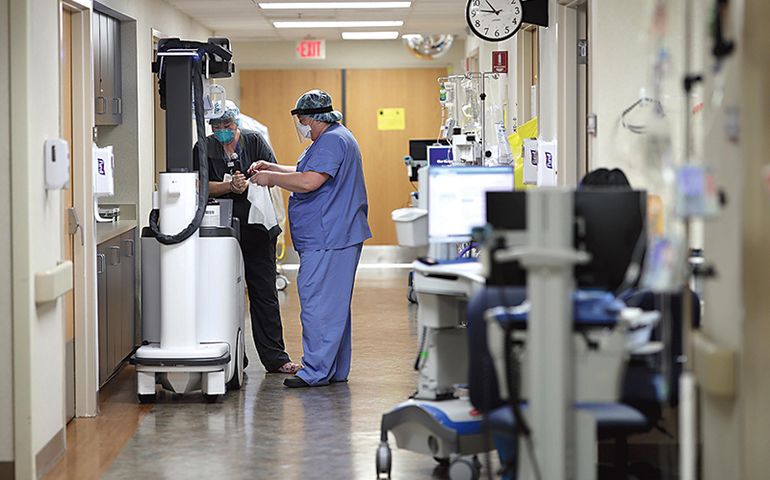Processing Your Payment
Please do not leave this page until complete. This can take a few moments.
-
News
-
Editions
-
- Lists
-
Viewpoints
-
HBJ Events
-
Event Info
- 2024 Economic Outlook Webinar Presented by: NBT Bank
- Best Places to Work in Connecticut 2024
- Top 25 Women In Business Awards 2024
- Connecticut's Family Business Awards 2024
- What's Your Story? A Small Business Giveaway 2024 Presented By: Torrington Savings Bank
- 40 Under Forty Awards 2024
- C-Suite and Lifetime Achievement Awards 2024
- Connecticut's Health Care Heroes Awards 2024
-
-
Business Calendar
-
Custom Content
- News
-
Editions
View Digital Editions
Biweekly Issues
- April 29, 2024
- April 15, 2024
- April 1, 2024
- March 18, 2024
- March 4, 2024
- February 19, 2024
- February 5, 2024
- January 22, 2024
- January 8, 2024
- + More
Special Editions
- Lists
- Viewpoints
-
HBJ Events
Event Info
- View all Events
- 2024 Economic Outlook Webinar Presented by: NBT Bank
- Best Places to Work in Connecticut 2024
- Top 25 Women In Business Awards 2024
- Connecticut's Family Business Awards 2024
- What's Your Story? A Small Business Giveaway 2024 Presented By: Torrington Savings Bank
- 40 Under Forty Awards 2024
- C-Suite and Lifetime Achievement Awards 2024
- Connecticut's Health Care Heroes Awards 2024
Award Honorees
- Business Calendar
- Custom Content
Study: ‘Public option’ could lead to higher premiums, taxes
 Photo | CNN
Photo | CNN
An expansion of state-controlled health insurance — sometimes labeled the “public option” at the state Capitol — could lead to higher taxes and premiums as well as a decline in the quality of patient care in Connecticut, according to a study released Tuesday.
An analysis by KNG Health Care Consulting, a health economics and policy consulting group, concluded that a proposal to expand access to a state-administered insurance plan to small businesses, nonprofit organizations and multiemployer groups — introduced to the legislature last year as SB 842 — would likely force the state to raise taxes on health insurers and residents, increase premiums and possibly increase the number of uninsured people.
The study was supported by Connecticut’s Health Care Future, a project of the Partnership for America’s Health Care Future, which represents hospitals and health insurers. The group has opposed initiatives it sees as supporting a single-payer health platform.
The report found that state revenue from premium taxes and health insurance assessments could fall significantly, by between $71 million and $122 million by 2023, if a public health insurance plan was adopted.
The state would have to make up that shortfall likely through an increase in taxes and assessments on health insurers, or through additional taxes on businesses and individuals, the report said.
Premiums could increase, the study’s authors noted, as could the number of uninsured individuals. In four of six scenarios modeled, KNG said, the increase in the number of uninsured people ranges from 9,000 to 29,000 as a result of higher premiums for workers, especially for those whose employers do not take up the public option.
And if the new insurance plan is as underfunded as Connecticut’s current insurance plan for non-state employees, the report concludes, the state would likely need to raise premiums or other tax revenues, which would result in a heavier financial burden for residents, or cut provider reimbursement rates, which could negatively affect access to high-quality treatment and services.
SB 842 — the state’s third attempt at creating a “public option” — stalled out last year. It had won support from progressive Democrats and then-Comptroller Kevin Lembo, but drew fire from the executives of several Connecticut-based insurance companies.
Gov. Ned Lamont, through a spokesman, also voiced misgivings over the bill, fearing that it would constitute a potential “blank check” to the state.
Lembo, who as comptroller oversaw the state’s healthcare plans, had argued that the reforms were financially sound.
KNG’s study comes as the legislature prepares to convene for its 2022 session next month. It is possible that a new public option bill could surface, though it is not clear if it’s chances of success would be greatly improved from last year.

2022 Giving Guide
This special edition informs and connects businesses with nonprofit organizations that are aligned with what they care about. Each nonprofit profile provides a crisp snapshot of the organization’s mission, goals, area of service, giving and volunteer opportunities and board leadership.
Learn more
Subscribe
Hartford Business Journal provides the top coverage of news, trends, data, politics and personalities of the area’s business community. Get the news and information you need from the award-winning writers at HBJ. Don’t miss out - subscribe today.
Subscribe
2024 Book of Lists
Delivering Vital Marketplace Content and Context to Senior Decision Makers Throughout Greater Hartford and the State ... All Year Long!
Read Here-
2022 Giving Guide
This special edition informs and connects businesses with nonprofit organizations that are aligned with what they care about. Each nonprofit profile provides a crisp snapshot of the organization’s mission, goals, area of service, giving and volunteer opportunities and board leadership.
-
Subscribe
Hartford Business Journal provides the top coverage of news, trends, data, politics and personalities of the area’s business community. Get the news and information you need from the award-winning writers at HBJ. Don’t miss out - subscribe today.
-
2024 Book of Lists
Delivering Vital Marketplace Content and Context to Senior Decision Makers Throughout Greater Hartford and the State ... All Year Long!
ABOUT
ADVERTISE
NEW ENGLAND BUSINESS MEDIA SITES
No articles left
Get access now
In order to use this feature, we need some information from you. You can also login or register for a free account.
By clicking submit you are agreeing to our cookie usage and Privacy Policy
Already have an account? Login
Already have an account? Login
Want to create an account? Register
Get access now
In order to use this feature, we need some information from you. You can also login or register for a free account.
By clicking submit you are agreeing to our cookie usage and Privacy Policy
Already have an account? Login
Already have an account? Login
Want to create an account? Register






0 Comments